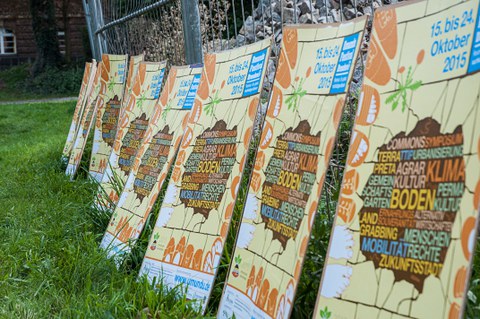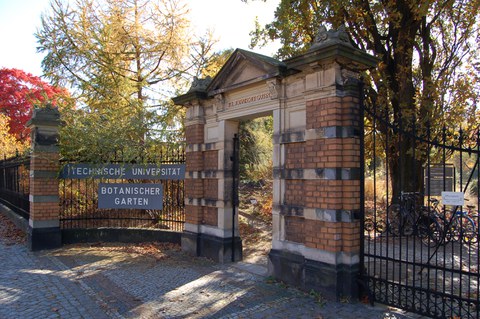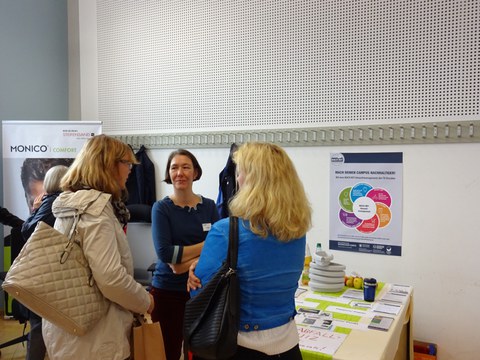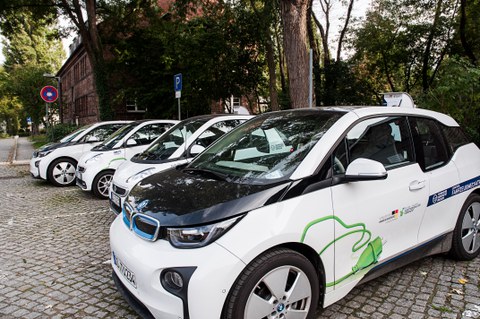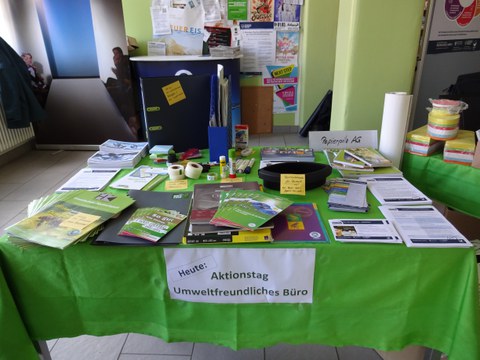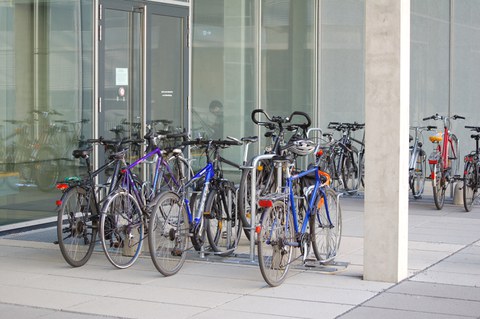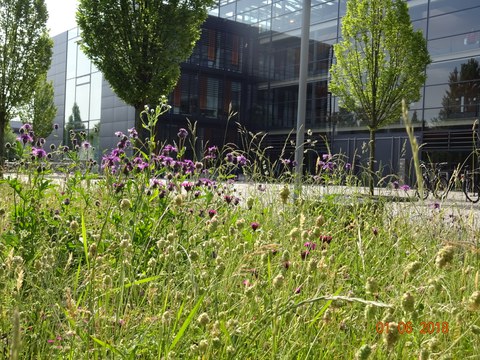Fields of action in environmental management
TU Dresden has identified and evaluated all significant environmental impacts in the context of environmental management. The most important indirect environmental aspect of the university is education and research. The impact of this aspect can not be directly influenced. The direct environmental aspect of energy is currently the aspect with the highest need for action. Aspects of waste and procurement are as well at the focus of attention. Of great importance is the environmental aspect of mobility, i.e. In which ways students and staff reach the university and how they cover distances on the campus. Below, these environmental aspects are described in more detail:
Aspects of environmental protection are integrated into many courses of study at TU Dresden, e.g. in natural sciences, arts or engineering. There are study schemes which cover comprehensive environmental topics, courses in which a specialization on these topics in the main compartment is possible, and programs that handle environmental issues in the broader sense.
Many research projects at TU Dresden are concerned with environmental issues. The spectrum extends beyond the research of energy efficiency, renewable energy and sustainable mobility, towards practical environmental protection and conservation. The research at the TU Dresden is focused on five key profiles, where Energy, mobility and environment is one of them. This is to ensure the international visibility and the long-term innovation potential of environmental research at TUD.
The disposal of waste at TU Dresden follows the principles of waste prevention, waste reduction, recycling and safe disposal of waste. The Waste Directive (Abfallentsorgungsrichtlinie) provides employees and students with information about waste disposal at TU Dresden, in particular for the correct collection and recovery of recyclable materials as well as for the collection, recovery and disposal of hazardous and non-hazardous waste. The disposal of radioactive waste is organised by the Radiation Protection Agent (Strahlenschutzbevollmächtigten).
The main objective is the conscious use of energy (electricity, heat, cooling energy) as well as the monitoring and regulation of energy consumption. The use of energy has significant impacts on the environmental performance of TU Dresden. The necessary conditions for education and research activities as well as for safety at work have to be met. The presentation and analysis of energy consumption data of TUD is part of the Umwelterklärung (environmental statement).
Green procurement of office equipment and other items helps to relieve the environment and promotes the position of environmentally friendly products and services on the market. TU Dresden as a contracting authority has certain legal regulations to follow and is therefore restricted on the integration of environmental aspects in procurement decisions. However, employees can consider the procurement of sustainable and environmental-friendly products for regular office and business needs (e.g. recycling paper).
Mobility is fundamental for our lives but has a huge impact on the environment. In Dresden about 7,000 employees and 36,000 students move from their home to university and back each working day. This means a significant volume of traffic connected with pollution, noise and resource consumption. It is therefore important to establish measures to foster sustainable mobility, e.g. improving the cycling infrastructure or offering job tickets.
Die Biodiversität auf dem Campus zu erhöhen, ist ein wichtiges Ziel des Umweltmanagements. Mit dem Projekt Nachhaltiger Campus hat die TU Dresden die Möglichkeit konkrete Maßnahmen in diesem Bereich umsetzen zu können. Ein wesentliches Anliegen ist der Erhalt von Lebensräumen für Insekten, Vogel- und Fledermausarten.
Für die gestalterische Aufwertung der Grün- und Freiflächen wurde vom Institut für Landschaftsarchitektur ein Gesamtkonzept Masterplan Campusgestaltung - für die zukünftige Entwicklung des Campus erarbeitet. Die Aufenthaltsqualität soll durch gezielte Maßnahmen und unter Berücksichtigung des Gesamtkontext schrittweise in den nächsten Jahren verbessert werden. Die Ziele des Umweltmanagements werden in diesen Entwicklungsprozess mit einfließen.

